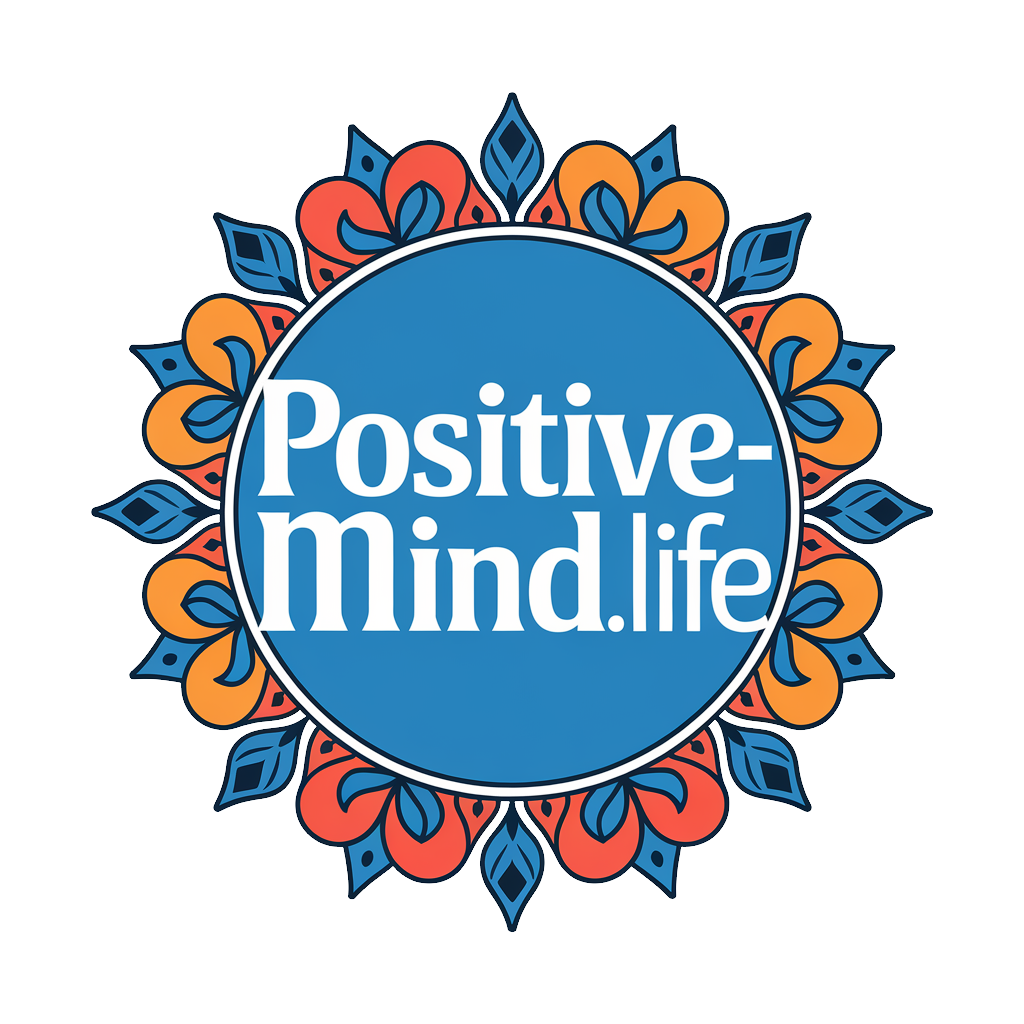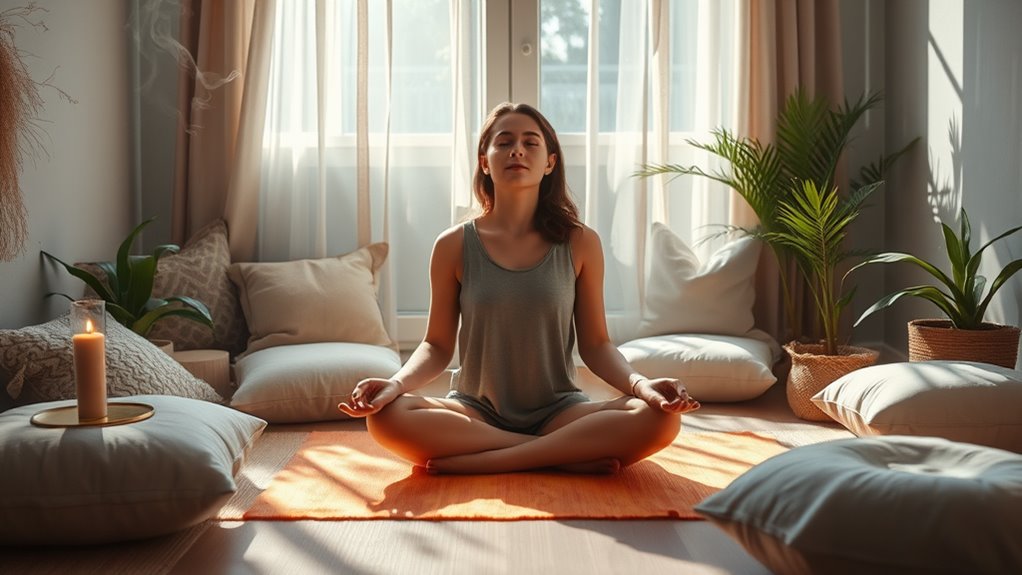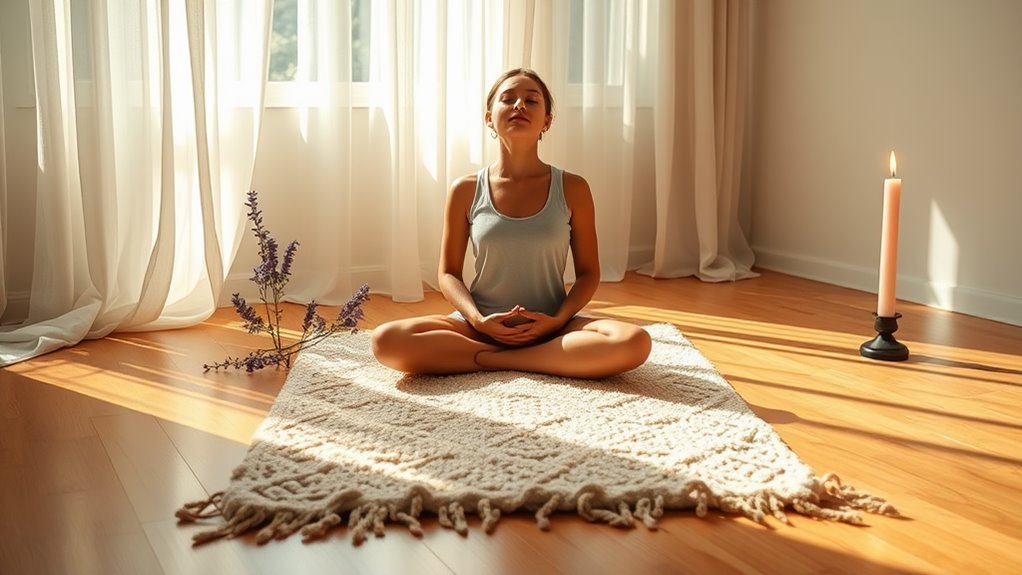Beginner’s Guide- How to Meditate Even If You’re Stressed!
Meditation is a simple yet powerful tool to help you navigate stress. Start by finding a quiet spot where you feel comfortable, whether that’s sitting, lying down, or even in a chair. Focus on your breath; try inhaling through your nose for four counts and exhaling for six. It’s normal for thoughts to wander—acknowledge them and gently bring your focus back. Don’t worry about getting it perfect. Even short sessions of 5-10 minutes can make a difference. As you explore these practices, you’ll discover ways to enhance your calm and resilience even more.
Understanding Meditation Basics
Meditation’s power lies in its simplicity, making it an accessible tool for everyone, including you. At its core, meditation is about finding a moment of stillness and turning your attention inward. You don’t need any fancy equipment or a special setting; all you need is a quiet space and a willingness to pause.
Start by getting comfortable—whether that’s sitting on a chair, on the floor, or even lying down. Close your eyes gently and allow yourself to relax. It’s normal for your mind to wander, especially when you’re stressed. When thoughts pop up, acknowledge them without judgment and gently bring your focus back to your breath or a mantra.
Understanding that there’s no right or wrong way to meditate can be liberating. You’re not trying to clear your mind completely; instead, it’s about observing your thoughts and feelings. With practice, you’ll find that even a few minutes of meditation can help ground you, reduce stress, and cultivate a sense of calm. Remember, every step you take in this process is valuable, so be kind to yourself as you explore this journey.
Breathing Techniques for Beginners
Breathing techniques are essential for beginners looking to enhance their meditation practice and manage stress effectively. Focusing on your breath helps ground you, making it easier to let go of racing thoughts. Start with simple deep breathing. Inhale slowly through your nose for a count of four, filling your belly, then exhale gently through your mouth for a count of six. Repeat this for a few minutes, allowing your body to relax.
Another effective method is the 4-7-8 technique. Inhale through your nose for four counts, hold your breath for seven counts, and then exhale through your mouth for eight counts. This technique promotes relaxation and can help reduce anxiety.
If you find your mind wandering, try counting your breaths. Inhale and silently count “one,” exhale and count “two,” continuing up to ten before starting over. This can help maintain focus and calm your racing thoughts.
Overcoming Common Challenges
Meditating can feel like an uphill battle, especially when stress is weighing you down. You might find it hard to focus, or your mind races with thoughts. The good news is that you’re not alone in facing these challenges. Let’s break them down and find solutions together.
| Challenge | Strategy | Encouragement |
|---|---|---|
| Distracting thoughts | Acknowledge and return focus | It’s normal; just gently guide your mind back. |
| Physical discomfort | Adjust your position | Comfort is key; find what works for you. |
| Time constraints | Start small (5-10 mins) | Every minute counts; you’re building a habit! |
| Frustration with progress | Celebrate small wins | Progress is personal; be kind to yourself! |
Simple Guided Meditation Practices
When stress feels overwhelming, trying out simple guided meditation practices can make a significant difference. These practices can help you find calm and clarity in just a few minutes. To get started, find a quiet space where you won’t be disturbed. You can use a meditation app or online videos that guide you through the process. They’ll offer soothing instructions and calming music to ease you into relaxation.
Begin by sitting comfortably, closing your eyes, and taking a few deep breaths. Let the guided voice lead you through visualizations or breathing exercises. Focus on your breath as you inhale and exhale slowly. If your mind wanders, gently bring your attention back without judgment.
You might also try a body scan, where you consciously relax each part of your body, starting from your toes up to your head. This helps release tension and reconnect with your physical self.
Tips for Immediate Stress Relief
Sometimes, just a few quick techniques can help you regain your calm in moments of stress. One effective method is deep breathing. Simply find a comfortable position, close your eyes, and take a deep breath in through your nose, letting your abdomen expand. Hold for a few seconds, then exhale slowly through your mouth. Repeat this for a minute or two, and you’ll likely feel a sense of relief.
Another technique is grounding. Focus on your surroundings by naming five things you can see, four you can touch, three you can hear, two you can smell, and one you can taste. This practice brings you back to the present and distracts from overwhelming thoughts.
If you can, step outside for a quick walk. Nature has a calming effect, and even a few minutes in fresh air can lift your spirits. Lastly, consider using positive affirmations. Repeat phrases like, “I am in control,” or “This too shall pass.” These small actions can provide immediate relief, helping you feel more centered and ready to tackle whatever’s stressing you. Remember, it’s okay to take a moment for yourself. You deserve it!
Frequently Asked Questions
How Long Should I Meditate Each Day as a Beginner?
As a beginner, try starting with just five to ten minutes each day. It’s about consistency, not duration. You’ll gradually feel more comfortable, and you can always increase the time as you progress.
Can Meditation Help With Physical Pain Relief?
Imagine a gentle wave washing over you, soothing each ache. Yes, meditation can indeed help with physical pain relief. It’s like training your mind to find calm amidst discomfort, allowing your body to heal more effectively.
What Is the Best Time of Day to Meditate?
The best time to meditate really depends on you. Morning can set a positive tone, while evenings help unwind. Listen to your body and choose when you feel most at ease to practice mindfulness.
Is It Normal to Feel Restless During Meditation?
It’s completely normal to feel restless during meditation. Don’t worry; it happens to many people. Just acknowledge those feelings, breathe through them, and remember that each session is a step toward tranquility and self-discovery.
Do I Need Special Equipment or a Space to Meditate?
You don’t need fancy equipment or a perfect space to meditate. Just find a quiet spot, sit comfortably, and focus on your breath. It’s about your mindset, not the surroundings—so start wherever you are!




